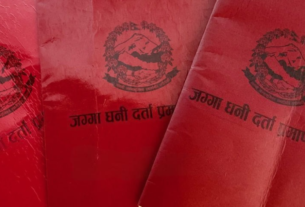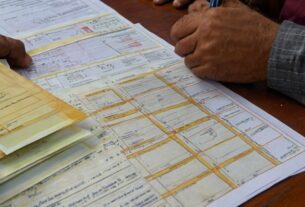What Nepal’s Government Can Learn from RERA (Real Estate Regulatory Authority of India)
The Indian Real Estate Regulatory Authority (RERA) was established under the Real Estate (Regulation and Development) Act, 2016 to promote transparency, accountability, and efficiency in the real estate sector. Nepal’s real estate industry, which currently lacks a strong regulatory framework, could benefit significantly from incorporating similar mechanisms. Here’s an analysis for a blog and video content:
Key Lessons from RERA for Nepal’s Real Estate Sector
1. Transparency in Transactions
- What RERA Does: Developers must register their projects and disclose key details, such as project timelines, layout plans, and financial accounts, to ensure transparency.
- What Nepal Can Learn: Nepal can mandate a centralized platform where all real estate projects are registered, offering buyers access to verified details and minimizing fraudulent transactions.
2. Consumer Protection
- What RERA Does: Buyers’ payments are secured by requiring developers to deposit 70% of funds received in an escrow account, ensuring money is used only for the intended project.
- Nepal’s Potential Approach: Introduce escrow mechanisms to protect buyers from incomplete or delayed projects and ensure funds are used efficiently.
3. Grievance Redressal Mechanism
- What RERA Does: A specialized tribunal addresses disputes between buyers and developers quickly and efficiently.
- Nepal’s Opportunity: Establish a real estate tribunal to resolve issues, reducing reliance on lengthy court procedures and giving buyers confidence.
4. Accountability of Developers
- What RERA Does: Developers are held accountable for delivering projects on time. Penalties are imposed for delays or deviations from promised specifications.
- Adaptation for Nepal: Implement strict timelines for project completion, backed by penalties for violations, which can deter false promises by developers.
5. Standardization of Property Agreements
- What RERA Does: Enforces standardized sale agreements, reducing ambiguity and protecting buyers from unfair terms.
- Nepal’s Implementation: Draft and enforce standard agreement formats for property transactions to safeguard buyers’ interests.
6. Promotion of Ethical Practices
- What RERA Does: Penalizes misleading advertisements and ensures developers deliver exactly what they promise.
- Nepal’s Role: Enforce laws against false advertising and provide platforms where developers can be reviewed and rated by buyers.
7. Registration of Real Estate Agents
- What RERA Does: Mandates agents to register with RERA, ensuring they follow ethical practices and maintain accountability.
- Nepal’s Approach: Regulate and license agents, ensuring only qualified professionals operate in the market.
Benefits of Adopting RERA-Like Policies in Nepal
- Improved Buyer Confidence: Transparent transactions and accountability will make real estate a safer investment.
- Increased Foreign Investment: A regulated market attracts international investors, which can help Nepal’s economy.
- Organized Sector Growth: Standardized practices will bring structure to Nepal’s currently fragmented real estate sector.
- Protection Against Fraud: Buyers will feel secure knowing there are mechanisms to address disputes and punish violations.
Challenges in Implementing RERA-Like Policies in Nepal
- Lack of digitization in property records.
- Resistance from developers and brokers due to increased compliance costs.
- Need for trained professionals to operate regulatory bodies.
- Public awareness about the benefits of regulation.
Conclusion
Nepal has the opportunity to learn from India’s RERA framework to make its real estate sector transparent, fair, and efficient. By taking steps toward stronger regulations, the government can protect buyers, streamline development, and boost investor confidence in the real estate market.



